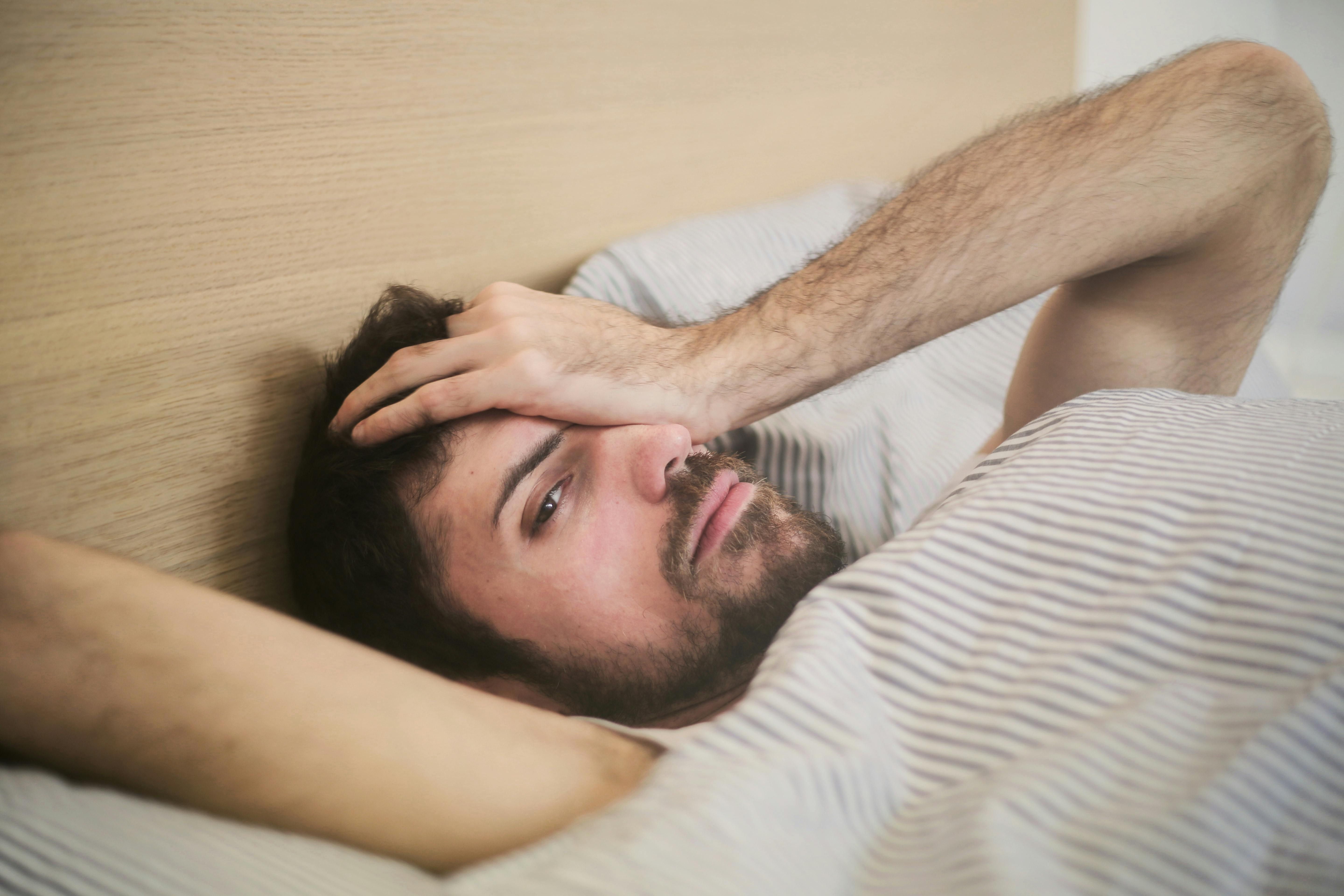Can't Snooze Even When Exhausted? Here's the Lowdown on Insomnia
Insomnia persists despite significant fatigue: Explanation for ongoing restlessness. - Insomnia persists despite extreme fatigue
By Doris Schneyink
Diving into the mystery of why you're wide awake despite being absolutely knackered, let's explore the whys and hows of insomnia.
After a tough, energy-draining day, you'd think your brain would wave the white flag and call it a night. But here's the thing—the brain isn't always so straightforward. It's an intricate network that gradually winds down, becoming less responsive to information and sending signals for your muscles to relax, all while melatonin, the body's rest hormone, kicks in. And yet, you're still awake, fighting sleep.
According to Pronova BKK's survey from last year, around 30% of Germans face the same predicament, battling to nod off. It turns out, falling asleep is a complex, multi-stage process, and the brain regions involved don't switch off all at once—they do so at their own pace. That means your thoughts could still be racing even when you're exhausted, preventing your sleep onset.
But what causes this temporary or chronic sleep disruption? The answer lies in a mix of physical, mental, and external factors. Hormonal changes during puberty or menopause can mess with your sleep. Emotional turmoil, stress, fear, or excitement can also keep you awake. When it comes to external factors, noise, light, heat, and cold can all disrupt your Zs.
To ease your way into dreamland, consider adopting sleep-friendly habits. Ditch foods with caffeine or theine, as these substances interfere with your ability to rest. And although it might seem counterintuitive, shortening your time in bed could actually help you sleep better. If you usually hit the hay at 10:30 PM but struggle to fall asleep for more than half an hour, consider pushing back your bedtime to 11:30 PM.
Now, what about those who battling chronic insomnia? They might find themselves exhausted and eager to catch up on sleep after a bad night. Unfortunately, this tactic often backfires, leading to even shorter and poorer sleep.
So, what's the solution if you can't seem to catch those elusive winks, even after a grueling day? It could be stressed, anxious thoughts, a less-than-ideal sleep environment, irregular sleep schedules, or underlying health issues like chronic pain, acid reflux, or sleep apnea.
To conquer insomnia and finally enjoy a restful night, consider establishing a relaxing bedtime routine, improving your sleep environment, following consistent sleep schedules, limiting stimulants, and seeking professional help if necessary. Sweet dreams!
- Insomnia
- Sleep
- Tiredness
- Bed
- Sleeping through the night
Enrichment Data:
Overall:
Insomnia, even when you're bone-tired, can have various causes. Understanding these factors is vital for finding effective solutions.
- Stress and Anxiety: High stress and anxiety levels can make it tough to fall or stay asleep[1][3].
- Lifestyle Factors: Poor sleep habits, like irregular sleep schedules, excessive screen time before bed, and consuming caffeine or alcohol late in the day, can disrupt your sleep[3][4].
- Medical Conditions: Underlying health issues like chronic pain, acid reflux, and sleep apnea can contribute to insomnia[1][5].
- Environmental Factors: Noise, light pollution, and uncomfortable sleeping environments can also lead to insomnia[4].
- Genetic Predisposition: Some people may have a genetic tendency towards insomnia, which can be exacerbated by exhaustion[1].
Solutions:
To combat insomnia and improve your sleep quality despite feeling exhausted, consider these strategies:
- Establish a Relaxing Bedtime Routine: Engage in calming activities before bed, such as reading, meditation, or deep breathing exercises[2].
- Improve Sleep Environment: Ensure the bedroom is dark, quiet, and at a comfortable temperature. Use black-out curtains, earplugs, or a white noise machine if necessary[4].
- Adopt Consistent Sleep Schedules: Maintain regular sleep schedules by going to bed and waking up at the same time each day, including weekends, to stabilize your circadian rhythms[3].
- Limit Stimulants and Electronic Devices: Avoid caffeine, nicotine, and electronic screens for a few hours before bedtime to minimize sleep disruptions[3][4].
- Seek Professional Help: Consult a healthcare provider or sleep specialist if insomnia persists. They can diagnose underlying conditions like sleep apnea or recommend treatments such as cognitive behavioral therapy for insomnia (CBT-I)[1][2].
- Doris Schneyink delves into the complexities of insomnia, explaining that despite feeling utterly tired, brain mechanisms may still be active, preventing sleep onset. This condition, apparently common among Germans, is often due to a combination of physical, mental, and external factors, such as stress, hormonal changes, and a less-than-ideal sleep environment.
- Sufferers from insomnia might find themselves trapped in a vicious cycle of exhaustion and sleep deprivation, where even the tiredness from a grueling day fails to help them sleeping through the night. The solution, therefore, lies in adopting sleep-friendly habits like establishing a relaxing bedtime routine, improving the sleep environment, and following consistent sleep schedules.
- Professional help may be recommended for those battling chronic insomnia. They might need to address stressed, anxious thoughts, irregular sleep schedules, or underlying health issues like chronic pain, acid reflux, or sleep apnea to conquer insomnia and finally enjoy a restful night.









